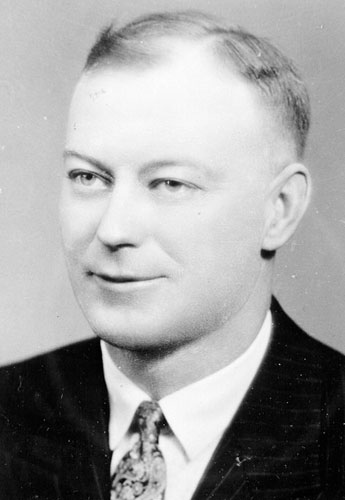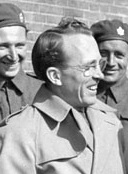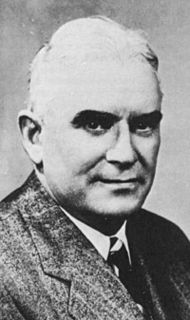| ||||||||||||||||||||||||||||||||||||||||||||||||||||||||||||||||||||||||||||||||||
52 seats in the Legislative Assembly of Saskatchewan 27 seats needed for a majority | ||||||||||||||||||||||||||||||||||||||||||||||||||||||||||||||||||||||||||||||||||
|---|---|---|---|---|---|---|---|---|---|---|---|---|---|---|---|---|---|---|---|---|---|---|---|---|---|---|---|---|---|---|---|---|---|---|---|---|---|---|---|---|---|---|---|---|---|---|---|---|---|---|---|---|---|---|---|---|---|---|---|---|---|---|---|---|---|---|---|---|---|---|---|---|---|---|---|---|---|---|---|---|---|---|
| ||||||||||||||||||||||||||||||||||||||||||||||||||||||||||||||||||||||||||||||||||
| ||||||||||||||||||||||||||||||||||||||||||||||||||||||||||||||||||||||||||||||||||
The Saskatchewan general election of 1938 was the ninth provincial election held in the Canadian province of Saskatchewan. It was held on June 8, 1938, to elect members of the Legislative Assembly of Saskatchewan.

The provinces and territories of Canada are the sub-national governments within the geographical areas of Canada under the authority of the Canadian Constitution. In the 1867 Canadian Confederation, three provinces of British North America—New Brunswick, Nova Scotia, and the Province of Canada —were united to form a federated colony, becoming a sovereign nation in the next century. Over its history, Canada's international borders have changed several times, and the country has grown from the original four provinces to the current ten provinces and three territories. Together, the provinces and territories make up the world's second-largest country by area.

Saskatchewan is a prairie and boreal province in western Canada, the only province without natural borders. It has an area of 651,900 square kilometres (251,700 sq mi), nearly 10 percent of which is fresh water, composed mostly of rivers, reservoirs, and the province's 100,000 lakes.

The Legislative Assembly of Saskatchewan is one of two components of the Legislature of Saskatchewan, the other being the Queen of Canada in Right of Saskatchewan,. The legislature has been unicameral since its establishment; there has never been a provincial upper house.
Contents
- Results
- Riding results
- Northwestern Saskatchewan
- Northeastern Saskatchewan
- West Central Saskatchewan
- East Central Saskatchewan
- Southwest Saskatchewan
- Southeast Saskatchewan
- Urban constituencies
- See also
- Notes
- References
The Liberal Party was returned to power under its new leader, William John Patterson, but it lost twelve of the seats it had held in the previous legislature. The Liberals faced several new forces in this election.

William John Patterson was a Liberal politician and Premier of Saskatchewan, Canada. He was first elected to the Legislative Assembly of Saskatchewan in the 1921 election. He succeeded James G. Gardiner to become the province's first Saskatchewan-born premier in 1935.
The Co-operative Commonwealth Federation, a democratic socialist party led by George Hara Williams, became the official opposition winning over 18% of the vote and ten seats in its first election. The party previously had five seats after the Farmer-Labour Group became the Saskatchewan CCF, following the previous election.
Democratic socialism is a political philosophy that advocates political democracy alongside social ownership of the means of production with an emphasis on self-management and democratic management of economic institutions within a market or some form of decentralized planned socialist economy.

George Hara Williams was a Canadian farmer activist and politician. Born in Binscarth, Manitoba, Williams attended Manitoba Agricultural College after serving in World War I. Upon graduating, he moved to Saskatchewan to become director of livestock and equipment in the province for the Soldier Settlement Board.
The Social Credit Party of Saskatchewan, which promoted the social credit theories of monetary reform, rode a wave of popularity from the 1935 electoral success of its Alberta counterpart and collected almost 16% of the votes, but won only two seats.
The Social Credit Party of Saskatchewan was a political party in the Canadian province of Saskatchewan that promoted social credit economic theories from the mid-1930s to the mid-1970s.
Social credit is an interdisciplinary distributive philosophy developed by C. H. Douglas (1879–1952), a British engineer who published a book by that name in 1924. It encompasses economics, political science, history, and accounting. Its policies are designed, according to Douglas, to disperse economic and political power to individuals. Douglas wrote, "Systems were made for men, and not men for systems, and the interest of man which is self-development, is above all systems, whether theological, political or economic." Douglas said that Social Crediters want to build a new civilization based upon "absolute economic security" for the individual, where "they shall sit every man under his vine and under his fig tree; and none shall make them afraid." In his words, "what we really demand of existence is not that we shall be put into somebody else's Utopia, but we shall be put in a position to construct a Utopia of our own."

Monetary reform is any movement or theory that proposes a system of supplying money and financing the economy that is different from the current system.
Six "Unity" candidates also run in an attempt to create a popular front of the Communists, CCF supporters and various populists. Although two were elected, they received only a very small fraction of the overall vote. [1]
Unity, United Progressive Movement and United Reform were the names used in Canada, by a popular front party initiated by the Communist Party of Canada in the late 1930s.
A popular front is a broad coalition of different political groupings, usually made up of leftists and centrists. Being very broad, they can sometimes include centrist Radical, liberal or bourgeois forces as well as social-democratic and communist groups. Popular fronts are larger in scope than united fronts.
The Communist Party of Canada (Saskatchewan) was a communist political party in the Canadian province of Saskatchewan. It was the Saskatchewan section of the Communist Party of Canada. It nominated candidates for the Legislative Assembly of Saskatchewan in provincial elections between 1938 and 1986.
The Conservative Party, under its new leader, John Diefenbaker, continued its decline as their share of the popular vote fell from 25% to under 12%. The party won no seats. Diefenbaker later had considerably more success in the federal Conservative Party, eventually becoming leader and sweeping the party to power in the 1958 election with a huge majority.

John George Diefenbaker was the 13th prime minister of Canada, serving from June 21, 1957 to April 22, 1963. He was the only Progressive Conservative party leader after 1930 and before 1979 to lead the party to an election victory, doing so three times, although only once with a majority of seats in the House of Commons of Canada.

The Progressive Conservative Party of Canada (PC) was a federal political party in Canada.











